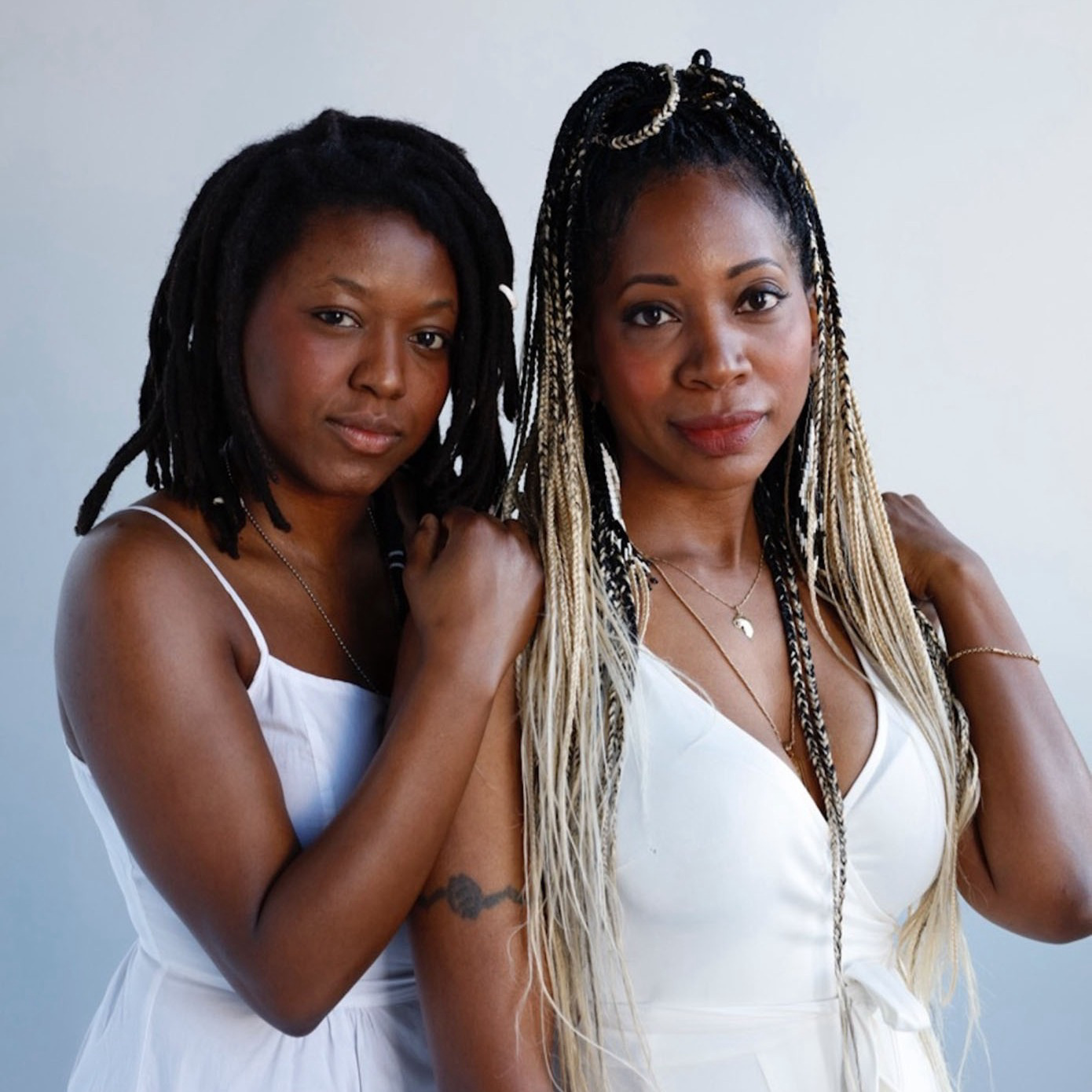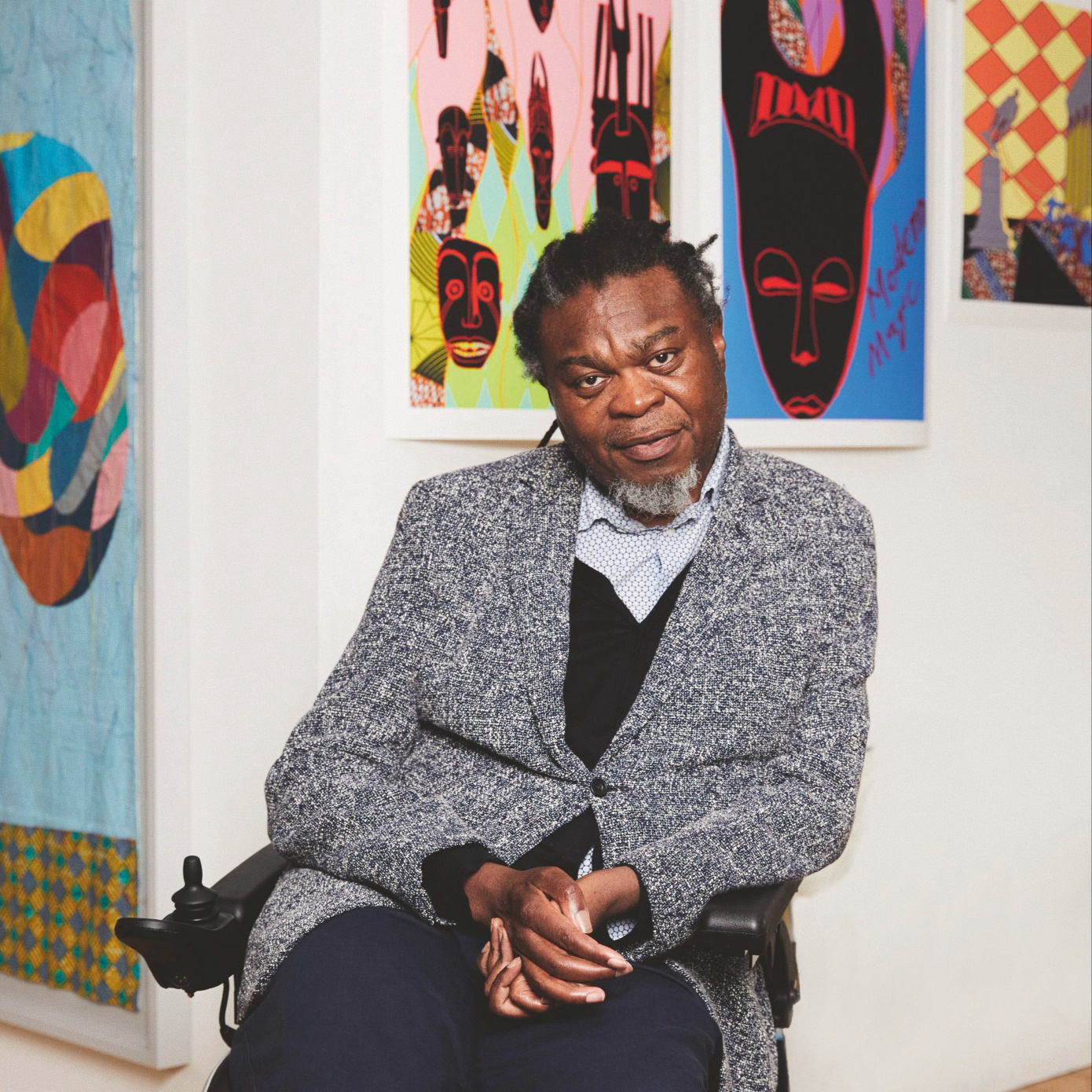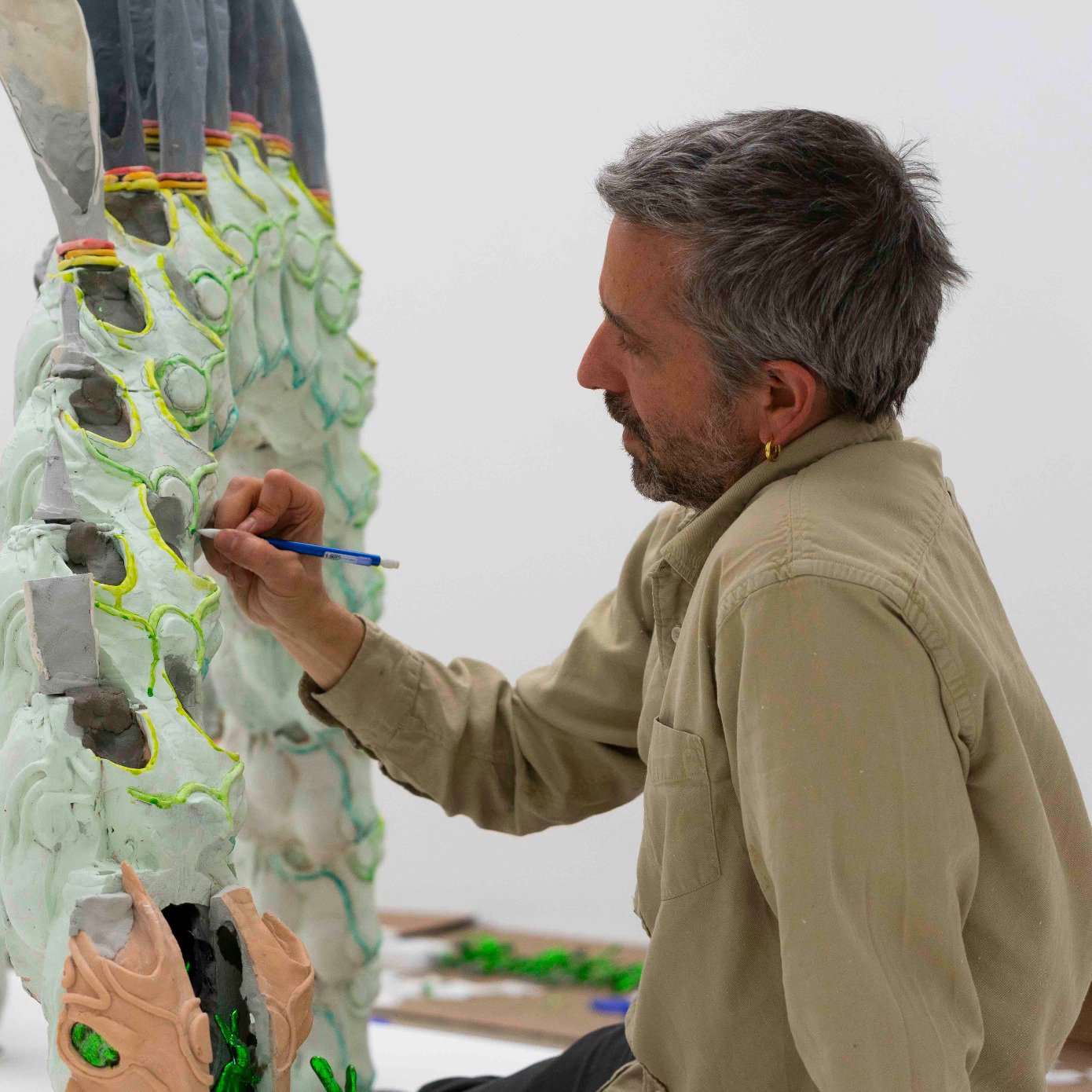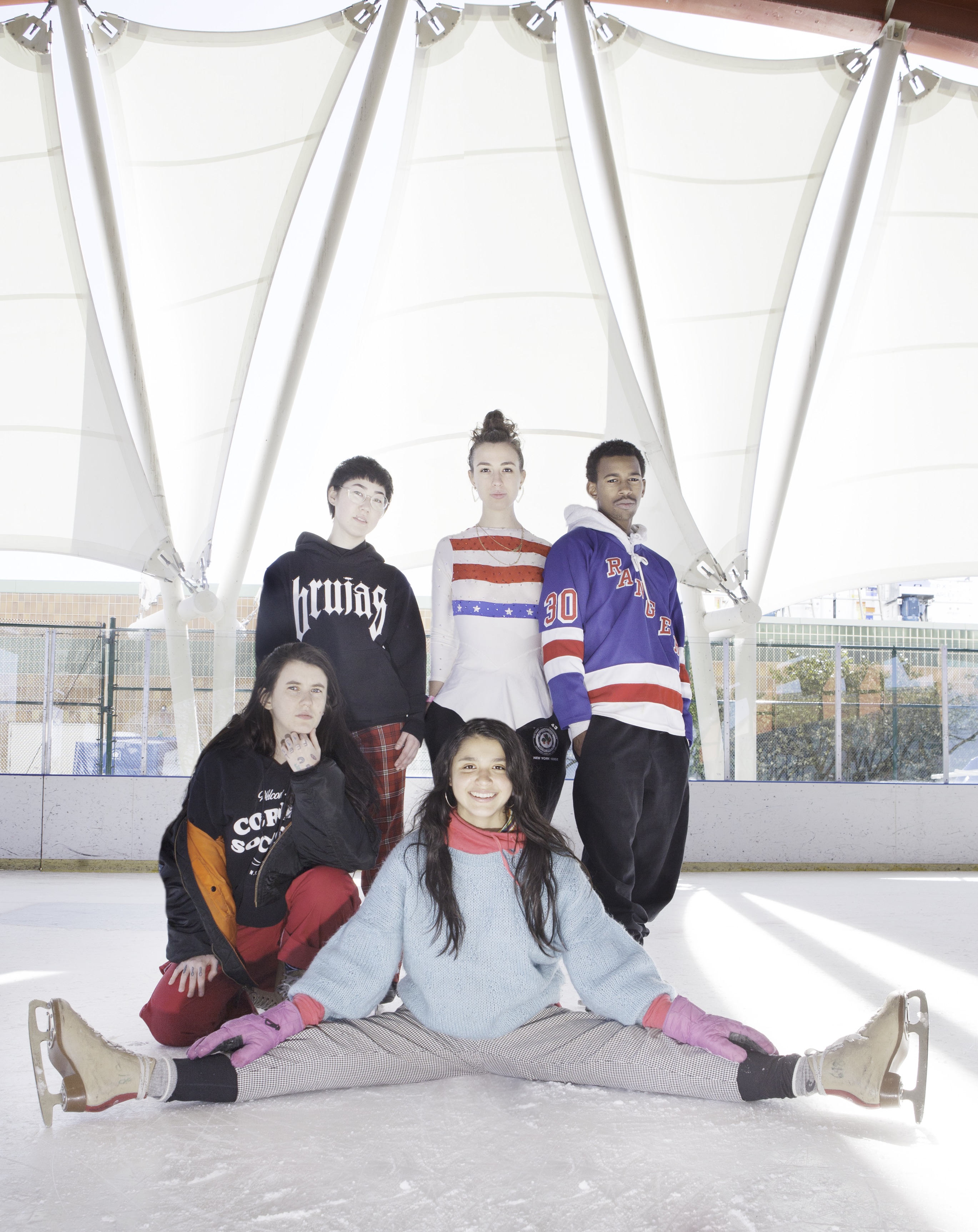
On a warm Sunday afternoon in mid-March, myself and various members of Brujas, including its co-founder Arianna Maya Gil, are gathered uptown in Washington Heights. Gil and her Brujas family, including Taj Williams, Ripley Soprano and Antonia Estela Perez, and others, have just come from a photoshoot at Riverbank State Park. I’m graciously offered tea, and we start our conversation about Brujas’s many ventures. They each speak thoughtfully, passionately, and eloquently about their radical politics, their cultural capital and what’s next on the horizon.
I first ask Gil, an Oberlin graduate who will turn 25 this year, if Brujas’s mission feels more urgent and immediate today under the Trump administration, than during the Obama era when it was founded in 2014. “To be honest, I’ve been completely ignoring that. It’s just always been the same goals, be it Obama or Trump.” Soprano, referred to by Gil as Brujas’s “political consigliere” interjects, “Well we did put out 1971, with the aim to materially support poor people in these times.” The Brujas x 1971 P.E. streetwear collection (the double entendre behind P.E. meaning physical education/political education) was an incredibly successful social justice project that empowers and protects QTPOC inmates in New York State prisons. The limited-edition line refers to the year of the historic Attica Prison Riot in upstate New York, and in 2016 on its 45th anniversary, Brujas raised close to $25,000 on Kickstarter—a large portion of which was donated to F2L (Freedom 2 Live), a QTPOC-supporting prison reform group.
Their Fall 2017 collection, Each One Teach One (inspired by the Catholic school uniforms Gil wore as young girl), an assortment of hoodies, sweatpants, polos and skate pants in sherbert shades of mauve, teal and baby pink was presented in a look book that was photographed at a school. The collection was accompanied by a syllabus and a free online course posted on their site called “Burning Down & Dreaming Up.” The course offers seminal texts by Angela Davis, the late Black Panther leader and Rainbow Coalition co-founder Bobby Lee, and the French philosopher Michel Foucault.
Brujas offers streetwear with monumental social purpose: for every hoodie, t-shirt, pair of socks or sweatpants that is purchased, the brand reciprocates with culture, social activism and ethical enrichment. Gil is confident in the cultural prowess Brujas possesses. “We have this marginal edge that is very marketable,” she says. “It’s so important for us to start developing an economy around it, because we innovated that.” Perez, who joined Brujas in 2014 and is the group’s community organizer and urban herbalist, adds, “What other streetwear brands are producing their clothes in an all-women’s cooperative using recycled and organic materials?”
Brujas is a multi-initiative, youth-driven, radical political organization sustained through clothing lines, events, education and coalition partnerships. Just don’t call them an all-femme Latinx skate crew from the Bronx. You would be dead wrong for that. Originally founded by New York natives Gil and Sheyla Grullon (who have each been skating since they were 12), the original intent was to break down white, male, cis, patriarchal culture at skate parks, and make space for more young, diverse women.
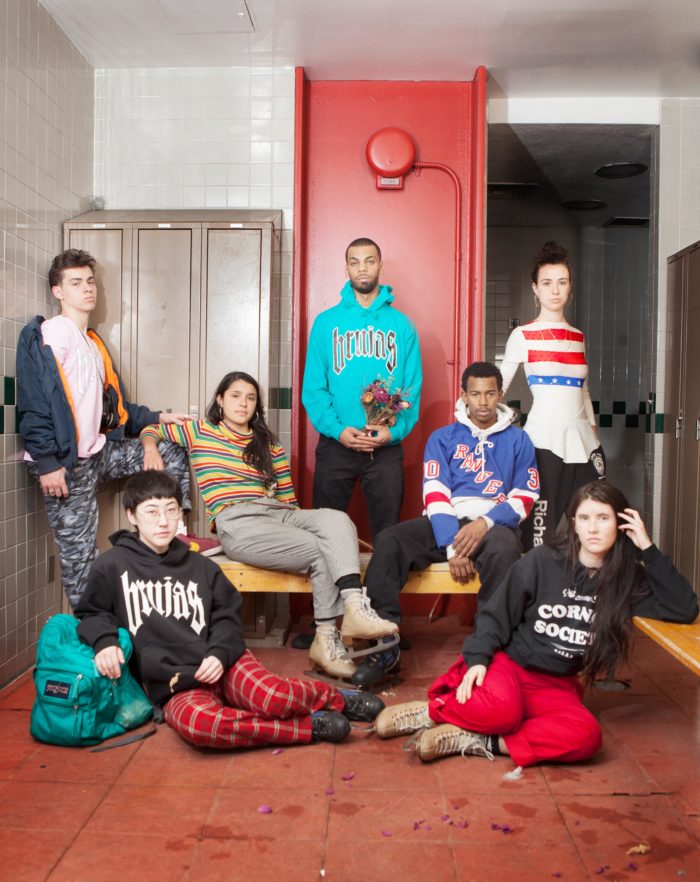
Over the years Brujas has faced constant media misrepresentation, being pegged as having a singular, femme-focused view, when in fact many young men help drive Brujas. Williams, one of the brand’s creative directors, grew up with a single mom and brother in South Central Los Angeles in the 90s and is influenced by Silvia Federici’s uncompensated labor theory (Brujas counts Federici as a major influence). “Taj brings in a lot of mentorship for some of the younger men involved in Brujas, which is absolutely crucial,” explains Gil. “His expertise is in our generation of streetwear, and bringing an energy that understands the revolutionary potential of taking a word and then creating a new meaning—a completely youthful approach to a logo or a word—is so powerful.”
Brujas works with and accepts all genders, all backgrounds and believes in absolutely no binaries. Their immersive universe consists of fashion lines, parties like the LGBTQ-inclusive Sucia (for the inaugural party, Gil and Princess Nokia deejayed), followed by Anti Prom and Winter Informal. Dubbed “the Met Ball for the Underground,” Anti Prom is an annual celebratory gathering for queer youth in New York City, which last year was presented in partnership with fashion brand Gypsy Sport, and saw Latinx hip-hop superstar Cardi B perform.
Under Gil’s vision, Brujas has aligned itself with Downtown art institutions for radical programming. In 2016, Brujas coupled with Croatian artist Željka Blakši for Brouhaha at Recess, a two-month project investigating counterculture, hosting skate sessions, screenings, conversations, musical events and workshops. That same year saw Brujas participate in the New Museum’s inaugural youth summit, Scamming the Patriarchy, which included fellow collectives like BUFU, Discwoman and members of House of Ladosha.
In late May, Brujas and industrial designer Jonathan Olivares, will embark on a two-week collaboration called Training Facility, creating a skate park at Performance Space New York’s new theatre. The project marks a homecoming for Gil who grew up skating all around Tompkins Square Park, Astor Place and PS 122, which is now Performance Space. “I deeply admire Arianna Gil and her crew,” says Jenny Schlenzka, the institution’s newly appointed director. “They are extremely intelligent and skillfully navigate recent media attention with steadfast principles and radical politics. With Training Facility we attempt to address the radical changes the East Village has undergone in the last 15 or so years but in a playful way. Skateboarding is a very appealing form of performance and I am looking forward to seeing Brujas and their friends spend time in our theaters.”
Asking Gil what’s next for Brujas, she lists off a continuation of the group’s endeavors, including Anti Prom 4 and “a big institutional critique launch—a heavy position on something that is controversial and important for our communities.” She continues, “And then in the fall, we are going to attempt expansion, and I will be focusing on more macro stuff.”
Soprano adds, “The largest challenge to us right now is how to scale the project and how to actually materially support ourselves.” Gil looks at the Brujas roster of young political warriors seated at the table, and says, “look at this amazing team, we have to grow.”

